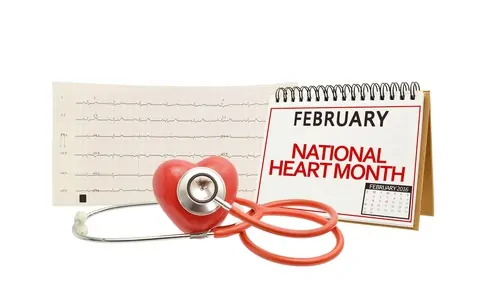Blog
Why It’s Important Not to Ignore Your Snoring

Think back to the last time you woke up feeling refreshed and ready to take on your daily demands. It’s so nice to have the energy and mindful clarity to help you be productive and make the most of your day. Has it been a while since you felt like this? Does your bed partner complain because your snoring keeps them up at night?
Your Douglasville dentist will tell you that if snoring is disrupting your life (and your family’s sleep), it might be time to consider learning more about something called sleep apnea. It could be the annoying (and dangerous) condition that’s keeping you and the ones you love from enjoying a peaceful, rejuvenating night’s sleep. Let’s take learn more about sleep apnea, its symptoms, and side effects.
What is Sleep Apnea?
If you think snoring while sleeping isn’t that common, think again! The American Sleep Apnea Association estimates nearly 90 million Americans are snoring away while trying to achieve a healthy night’s sleep. Sometimes snoring is just that, and people who have this condition are called “simple snorer’s” or primary snorers. This generally true for about half of the 90 million people sawing logs at night.
But for the other half, there’s a good chance they’re struggling with a more serious sleep disorder known as sleep apnea without even knowing it. Sleep apnea is dangerous because you can wake up as many as 100 times during the night, stop breathing, snore loudly, and struggle to regain a normal breathing pattern – and you don’t even know it!
Are There Different Kinds of Sleep Apnea?
Sleep apnea is usually classified in two distinctively different ways:
1) Obstructive Sleep Apnea (OSA) – This is, by far, the most common form of sleep apnea being diagnosed across the country today. If you or someone in your household is diagnosed with sleep apnea, it’s usually caused by a blocked airflow during sleep due to your soft tissue collapsing in the back of your throat. At our dental office in Douglasville, we’ll always tell you to seek help if you or someone in your family continues to have issues with snoring.
2) Central Sleep Apnea – This type of sleep apnea is more difficult to diagnose because it involves a specific problem with how your brain signals your breathing muscles to respond. Unlike OSA, your airway isn’t blocked. In this case your brain fails to signal your muscles to breathe. Brain tumors, brain infections, and strokes are often to blame.
Snoring and Sleep Apnea
Even though snoring can be a big indicator of sleep apnea, it also wreaks havoc on your oral health due to dry mouth because everyone needs saliva in their mouth to help:
- Rinse and cleanse your teeth to help reduce plaque build-up
- Wash away food particles leftover from brushing and flossing
- Remove dead cells that can lead to sore, infections, and bad breath
- Neutralize acids that cause plaque and erode your tooth enamel
Our Douglasville dental office will always go out of our way to keep you and your smile healthy. If you think snoring is affecting your teeth, don’t hesitate to talk to us. We’re always happy to help and answer any questions you may have.
How Does Oral Health Affect Heart Health?

February marks the beginning of a month-long dedication to heart health. It’s officially known as American Heart Month, and its purpose is to raise awareness of the risks associated with heart disease. Many people know that things like smoking and a poor diet can cause troubles with the heart, but at our dental office in Douglasville, we also know that your oral health can affect your heart health.
The Mouth is the Window to Whole-Body Health
You may have heard the expression that the eyes are the window to the soul, and while that may be true, another part of your body can tell you a lot about your overall wellbeing. The truth is, your mouth can give your dentist in Douglasville insight to other problems that may be going on in the rest of your body. More specifically, researchers have found a connection between gum disease and an increased risk for heart disease.
More About Gum Disease
Gum disease is a serious dental problem that requires early treatment to resolve. Without proper intervention, gum disease can lead to tooth loss and other health concerns throughout the body. In fact, the Academy of General Dentistry (AGD) has concluded that people who have gum disease are at increased risk of having a heart attack or developing heart disease. This happens because the bacteria that cause gum disease have a pretty easy path into the bloodstream and can raise the levels of something called C-reactive protein (CRP). High levels of CRP can cause some scary problems such as:
- Blood clots
- Stroke
- Inflamed arteries
- Heart attack
Signs of Gum Disease
Some of the most common signs of gum disease are easy to explain away and some may think they’re actually normal. However, any of the following signs could mean that you may have gum disease.
- Swollen, red, or tender gums
- Bleeding while brushing or flossing
- Consistently bad breath
- Chronic bad taste in the mouth
- Loose teeth
- Gums that appear to be pulling away from the teeth
If you notice any of the signs of gum disease, it’s important to see your Douglasville dentist as soon as possible.
The team at our Douglasville dental office wants to encourage all of our patients and neighbors to practice a good oral hygiene routine at home as well as get professional teeth cleanings and dental checkups at least twice a year. These appointments can help catch and treat gum disease before it has a chance to cause bigger, more serious complications.
Don’t leave your heart at risk, call to schedule an appointment today.
Can Dental Problems Be Linked to Vitamin Deficiencies?

We are well into winter, and that typically means we spend less time soaking up the sun, and in turn, our bodies get less vitamin D. While there’s a well-known link between overall health and even happiness and vitamin D, it may surprise you learn that there’s also a strong correlation between a lack of vitamin D and oral health problems. Our dental office in Douglasville wants to help our patients not only understand why vitamin D is so important for oral health but also learn other ways (besides sunshine) to get it.
Why is Vitamin D Important?
Getting a healthy dose of vitamin D daily not only helps boost our immune systems, but it can also help keep us healthier. Vitamin D keeps blood pressure low, aids the pancreas in producing insulin, and lowers the risk for infections including, but not limited to, gum disease. However, when we aren’t getting enough vitamin D, our bodies and teeth are at risk.
Vitamin D deficiency has been linked to osteoporosis, increased risk for type 1 diabetes, and even breast, colon, or prostate cancer. But the dangers don’t end there. Numerous studies have shown that vitamin D deficiency also increases the risk of dental decay. This is because vitamin D helps the body absorb calcium and phosphate — both of which are crucial for building and keeping strong tooth enamel. Without an adequate intake of vitamin D, our teeth are at risk for weakening and developing cavities.
Where to Get Vitamin D
The sun is a great way to fuel our bodies with vitamin D. But during winter months it becomes difficult to spend time outside enjoying the sun’s rays. To compensate, it’s important to make sure you’re getting enough vitamin D from somewhere else. Some great ways to keep up with your vitamin D intake is by:
- Eating Eggs and Fatty Fish
- Drinking Milk
- Taking Supplements
Don’t Forget the Calcium
Perhaps vitamin D’s most important job is helping us absorb calcium. The truth is, without vitamin D our bodies don’t absorb nearly enough calcium to protect our bones (and our teeth!) from deterioration. Make sure to pair foods high in vitamin D with those containing a lot of calcium such as:
- Dairy products
- Leafy green veggies
- Nuts
Providing your body with the right amount of vitamin D is important not only for your body but also for your oral health. Make sure your diet is packed with enough vitamin D and calcium to protect your smile. As always, our dental office in Douglasville is here to help get and keep your smile healthy for life.
Top 5 Most Common Dental Misconceptions

Caring for your smile may seem as simple as brushing and flossing every day and visiting our dental office in Douglasville twice a year. While those things are certainly important for oral health, there are some common misconceptions out there that, if followed, can either damage your smile or make your oral hygiene routine less effective. Let’s take a look at the top five…
Sugar is the Main Cause of Cavities
This misconception isn’t entirely false as eating or drinking things with a lot of sugar can definitely increase your risk for cavities. But it’s not necessarily the sugar itself that causes decay. When we eat sugar, the bacteria in our mouths feed on it and produce an acidic byproduct. It is actually this bacteria and acid combo that contribute the most to cavities.
Brushing Harder is Better
When you have a dirty dish or sink, you scrub… and scrub… and scrub in order to make it squeaky clean. This vigorous cleaning method is good for most household items, but not so great when it comes to your teeth. Brushing your teeth too hard can actually do more harm than good. A rough brushing can damage tooth enamel, irritate gums, and cause several oral health problems such as sensitivity and an increased chance for cavities.
You Should Rinse After Brushing
After brushing our teeth, it’s incredibly common practice to spit, rinse, spit, and perhaps rinse again. But in order to get the best cleaning and keep the protective fluoride doing its thing for as long as possible, it’s best to pass on the rinse. Instead, spit out any excess toothpaste. This will allow the fluoride to continue to protect teeth over time.
You Shouldn’t Brush Bleeding Gums
If gums are bleeding, it may make you think that you shouldn’t brush them so that you don’t further irritate them. However, bleeding gums are usually an early sign of gum disease. The best thing you can do is continue to brush your teeth and gums, but make sure to do so gently. Brushing helps remove bacteria that can make gum disease worse. If you notice bleeding when you brush or floss, you should also schedule an appointment with your dentist as soon as you can.
If You Don’t Have a Problem, You Don’t Need to See Your Dentist
We often hear of patients who don’t go to the dentist unless they have a problem. In fact, when it comes to dental care, the best way to prevent a problem from occurring in the first place is to visit your dentist in Douglasville at least twice a year. This can save you from experiencing the pain of many dental problems, as well as the cost of extensive treatment.
Maintaining a good oral health routine of brushing and flossing daily is only half of what it takes to keep your smile healthy for life. Make sure you’re using proper brushing and flossing techniques, eating a well-balanced diet packed with vegetables and fruits, and seeing your dentist every six months. We’re always welcoming new patients at our Douglasville dental office. Call to schedule an appointment today.
Does Acid Reflux Harm Teeth?

It’s common to feel the uncomfortable sensations associated with acid reflux in the gut and even in the chest. But did you know that acid reflux can also affect oral health? The team at our Douglasville dental office is here to tell you all you need to know about how acid reflux can increase the chance of decay and the need for advanced dental treatment.
Acid Reflux is Not Just a Gut Problem
Despite the fact that acid reflux is associated with digestion and can certainly affect the gut, the truth is that the very stuff that causes an upset stomach or heartburn is the same stuff that can contribute to damage in the mouth. As the body works to digest food, the stomach produces an acid to help break down food particles. Unfortunately, this acid can find it’s way out of the stomach, up the esophagus, and into the mouth. When it reaches the mouth it can wear down tooth enamel and increase the chance for sensitivity, cavities, and if left untreated, the need for dental treatment such as fillings, a root canal, or a dental crown.
Signs of GERD
Many people can experience acid reflux differently, but some of the most common signs include:
- Heartburn
- Bad breath
- Acidic taste in the mouth
- Difficulty swallowing
- Tooth sensitivity
Protect Your Teeth Against GERD
The good news is there are many medications available that can help reduce how often you experience symptoms of acid reflux. Besides finding the right medicine, your dentist in Douglasville may recommend some additional precautions to protect your teeth against the acid produced by reflux. Some common suggestions may include:
- Avoiding acidic foods and drinks
- Limiting spicy or sour foods
- Chewing sugar-free gum
- Using toothpaste with fluoride
Since sufferers of GERD are at increased risk for dental problems it’s important that they visit their dentist twice a year for check-ups and cleanings. These dental appointments can help identify any problems such as acid erosion or decay early, while treatment is easier.
We’re always accepting new patients at our dental office in Douglasville and welcome anyone who’s overdue for a dental visit to contact us today to schedule an appointment. We’re here to help.
Diabetes Awareness Month

November is recognized as National Diabetes Awareness Month and serves to raise awareness of diabetes, other health problems associated with the disease, and the importance of regulation. In fact, one of the little-known facts about diabetes is that it directly relates to oral health. Our dental office in Douglasville wants to help do our part this month and let our patients know all about the importance of sharing a diabetes diagnosis with your dentist.
“How Does Diabetes Affect My Oral Health?”
One of the most important parts of managing diabetes is keeping blood glucose levels stable and within a healthy range. Properly managing diabetes can reduce the risk of complications or other health problems such as heart disease. But healthy blood glucose levels can also keep mouths healthy too. Recent research has shown a strong connection to diabetes and gum disease. In fact, studies show that this connection may go two ways. For example, people who have diabetes are more susceptible to gum disease but at the same time, gum disease can make diabetes difficult to regulate, causing it to progress more rapidly.
“What Information Should I Tell My Dentist About My Diabetes?”
Your Douglasville dentist will start each new patient appointment by getting to know the person behind the patient. They’ll ask questions about health history, oral health goals, and any problems patients are worried about. Dental teams do this to better diagnose, treat, and prevent any problems that may arise. If you have diabetes, it’s important to share that with your dentist along with the following things:
- Results of some of your diabetes blood tests (the A1C or fasting blood glucose)
- Information about any prescriptions
- Your need for antibiotics before and after dental treatment for uncontrolled diabetes
“Does My Oral Hygiene Routine Need to Change?”
We always recommend that our patients brush their teeth twice a day and floss once a day, whether they have diabetes or not. Following this proper at-home oral hygiene routine will not only keep teeth clean, but can help reduce the likelihood of developing gum disease and, in turn, protect against the progression of diabetes or unwanted spikes in blood glucose.
The team at our Douglasville dental office is committed to protecting the health and smiles of all of our patients. Knowing all about any disease or health problem you have, including diabetes, can help us provide you with better care catered to your individual situation. If you have questions about how diabetes can affect your oral health, we welcome you to schedule an appointment with us today. We’re here to help.
Surprising Cavity-Causing Snacks That Are Worse Than Candy

With Halloween right around the corner, our dental office in Douglasville wants to share a secret with our patients and neighbors. Did you know that there are snacks out there that are worse for your teeth than candy? You heard us right. Candy may not be the scariest thing for your oral health. It’s no trick. Just the truth.
A Note on Sugary Sweets
While we’re here to talk about surprising snacks that are dangerous to oral health, it is worth mentioning that candy is still a concern for your dentist in Douglasville. But it’s not really the sugar itself that’s the problem. It’s what happens to the sugar when you eat it. Bacteria that live in the mouth love sugar and will feed on it every chance they get. This keeps the bacteria full and healthy. But what’s more concerning is what happens when these bacteria digest sugars. Like all living things, bacteria have to release waste. They just so happen to release an acid that wears away tooth enamel and increases the likelihood of cavities. Because of this, it’s still important to enjoy sugary foods in moderation.
It’s Not Only About Sugar
Even though sugar gets a bad reputation when talking about keeping teeth healthy, there are other treats that can be just as damaging, if not more so.
Crackers & Chips
The high starch content found in crackers and chips can be more of a concern than sugar. While these snacks don’t necessarily taste sweet, the starches can affect the body very much the same way sugar does. This is because chips and crackers have a high glycemic index. Foods with a high glycemic index are known to increase blood glucose levels as the body digests them. This means that even though there’s low sugar listed in the ingredients, the starches will feed mouth bacteria the same way sugar does. This also means that bacteria will release more of the acidic byproduct and leave teeth at risk for decay. But that’s not all.
When chewed, chips and crackers form into almost a paste-like consistency. This makes them very sticky and they can easily get stuck in between teeth and in tooth grooves. The longer the starches are left in the mouth like this, the more they’re feeding the bacteria and the more acid is getting released.
Keeping Your Teeth Safe
Just like we recommend limiting the amount of sugary foods you eat, we also suggest snacking on starchy foods such as chips and crackers in moderation. But no matter what you choose to treat yourself to this Halloween, be sure to pair eating with drinking water. This will help wash away food particles, bacteria, and neutralize acid.
Happy Halloween from our Douglasville dental office!
The Oral Health Benefits of Chewing Gum

It may come as a surprise to hear our dental office in Douglasville supporting something found in the candy aisle. But when it comes to gum, we actually recommend that our patients consider chewing it occasionally. However, not just any gum will get our seal of approval. Gum containing sugar, high fructose corn syrup, or saccharine just won’t do. Instead, look for a gum containing Xylitol and your mouth may thank you.
All About Xylitol
Xylitol is a natural sweetener that gives you the satisfaction of sweet without the damaging effects of regular sugar or many sugar substitutes. Traditional sugar can not only spike blood glucose levels throughout the body, but puts your teeth at increased risk for decay too. Xylitol is different and can actually boost oral health by:
- Protecting teeth against decay
- Preventing inflammation
- Reducing the risk of gum disease
- Building strong teeth
Why is Xylitol Good for Teeth?
Unlike traditional sugar that feeds the bacteria in our mouths, Xylitol technically starves it. You see, when regular sugar is ingested it provides the bacteria a feast of nutrients. But just like any living thing, what goes in must come out. It just so happens that the byproduct of feeding bacteria is a dangerous acid that can eat away at tooth enamel leaving them at risk for decay. Xylitol is different. While bacteria may still feed on Xylitol, it doesn’t provide bacteria with any nutrients and essentially starves it. In fact, chewing Xylitol gum can decrease oral bacteria levels, sometimes by up to 75%. This also means there is no acid production from feeding bacteria and teeth are more protected.
Chewing Xylitol gum does even more for your oral health than decreasing bacteria and acid. The act of chewing in general produces more saliva. This saliva neutralizes acid and rinses away harmful bacteria in the mouth. It also helps keep teeth strong by helping remineralize them with phosphate and calcium.
Gum can be a great way to protect teeth when you don’t have an opportunity to brush or floss your teeth, but it shouldn’t be a replacement to proper oral hygiene. We recommend continuing to brush and floss everyday and maintain visits to your dentist in Douglasville every six months.
At our Douglasville dental office we’re always accepting new patients and welcome you to call us to schedule an appointment today. We’re here to help our neighbors smile!
How to Stop a Toothache

Nobody ever wants to experience the pain and discomfort of a toothache. But the truth is, toothaches can happen to anyone, and they can come without warning. While the best way to treat a toothache is to see your dentist in Douglasville as quickly as you can, there are some things you can do before your appointment to help ease the pain.
5 Ways to Ease a Toothache
Toothache pain can come with a lot of discomfort. But this pain doesn’t necessarily stay only in the affected tooth. You can get a headache, your gums may pulse, and your entire mouth can feel the effects. Try these tips to help.
- Salt Water Rinse – Gently swish a solution of warm water and salt around your mouth a few times a day. This will help dry out fluid in the affected area and ease pressure on the nerves. Just make sure not to swallow the concoction.
- Ice – Just like any other injury, ice can help reduce inflammation and pressure on the nerves. Put an ice pack or a cold compress on the side of your face where the pain is coming from. Don’t put anything cold directly onto your skin. Use a cloth as a barrier.
- Anti-inflammatories – Over-the-counter anti-inflammatory medications may also ease toothache pain. Read the label on the bottle to determine how much should take. Remember, swallow the medication and do not apply it directly to the gums or tooth.
- Floss – If a piece of food stuck between two teeth may be causing the pain it’s ok to take a piece of floss and gently try to wiggle it out. The keyword here is gently. Too much pressure or roughly flossing can cause damage and more pain.
- Anesthetic – Many pharmacies and grocery stores carry over-the-counter oral anesthetics for tooth pain relief. They will temporary numb your mouth so you can get a little relief. However, these gels or liquids are not meant to be a permanent solution.
What Causes Toothaches Anyway?
There’s no one thing that can cause a toothache. Many things ranging from decay, cavities, or a dental injury may be to blame. While usually caused something minor which is easily treated at our Douglasville dental office, there are times when a toothache may be a sign of gum disease, infection, or chronic tooth grinding. Whatever is causing your toothache, it’s best to get it checked as soon as you can to avoid the need for in-depth treatment.
What You Can Do to Reduce Your Risk
Although toothaches can happen to anyone at any time, there are certain precautions you can take to reduce your risk of getting one. First, make sure to keep up with your dental appointments every six months. These dental cleanings and exams can catch potential problems before they have a chance to turn into an unwanted toothache. Second, practice good oral hygiene habits of brushing and flossing every day to remove food particles, bacteria, and plaque from teeth that could otherwise cause decay.
You don’t need to continue to suffer from toothache pain, and often times they’re easily treated. Try these at-home remedies and schedule an appointment at our dental office in Douglasville as soon as you can. We’re always happy to help.
What’s The Difference Between Gum Disease & Gingivitis?

Gum disease is often one term used to describe what are actually three different things. While each level of infection is recognized by a medical term all its own, they are all in fact an infection of the gums. At our dental office in Douglasville, we want to help our neighbors identify each level of gum disease, educate them on the risk factors, and talk about the complications that may result if gum disease is left untreated.
Different Stages of Gum Disease
Gingivitis
Let’s start with the mildest form of gum disease — gingivitis. Gingivitis is the early stage of gum disease and is classified by gum inflammation, redness, or maybe some bleeding while brushing and flossing. It’s caused when too much plaque builds up under the gum line. When caught before it has a chance to progress gingivitis can be treated and reversed.
Periodontitis
The next stage of gum disease is known as periodontitis. When gingivitis isn’t treated, the plaque buildup can start to affect the bone and tissues that are responsible for keeping the teeth sturdy and in place. If this occurs, it usually can’t be undone and recommended treatment is more about limiting any more damage.
Advanced Periodontitis
The most severe form of gum disease is advanced periodontitis. During this stage, bones and tissues are seriously weakened which can cause teeth to shift, become loose, or fall out. While treatment may help stop any damage from progressing, the damage that has already occurred is irreversible.
Gum Disease Risk Factors
There are several factors that may put someone at greater risk for developing gum disease. Some of these risk factors are controllable while others are not. For example, genetics are thought to play a role in the development of gum disease, and we can’t do much about the way we’re built. However, we can reduce our risk by not smoking, brushing and flossing regularly, and eating a well-balanced diet.
Signs of Gum Disease
You may have heard gum disease described as a silent disease, but what does that mean? In the earliest stages of gum disease (gingivitis), a person may have little to no symptoms and never suspect a problem. But knowing what to keep an eye out for can help you identify gum disease early and while it’s still treatable.
- Bleeding while brushing or flossing
- Bad breath
- Loose teeth
- Pain when chewing
- Receding gums
- Swollen, red gums
Gum Disease & Overall Health
If not treated early gum disease can lead to tooth loss and some other serious whole-body concerns. Numerous studies have shown that gum disease has been linked to serious medical conditions and diseases including:
- Lung disease
- Cancers
- Osteoporosis
- Heart attacks
- Strokes
The best way to protect your smile from gum disease is to brushing and floss everyday and make sure to visit your dentist in Douglasville at least twice a year.
If it’s been longer than six months since your last dental check, give our Douglasville dental office a call to schedule an appointment today.
